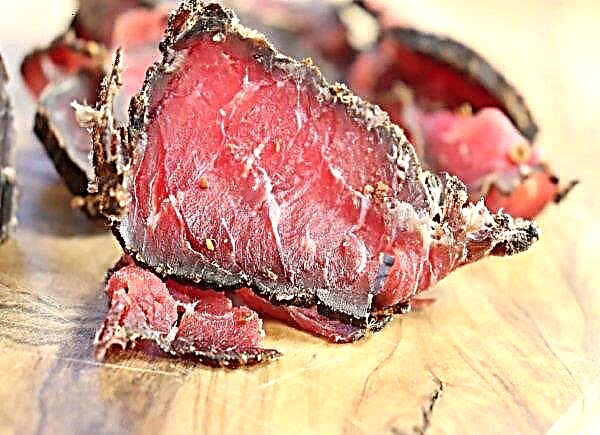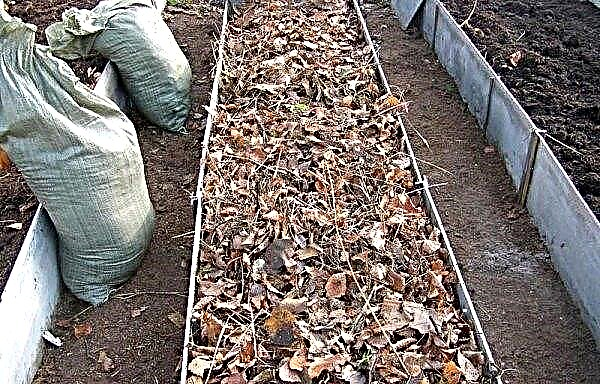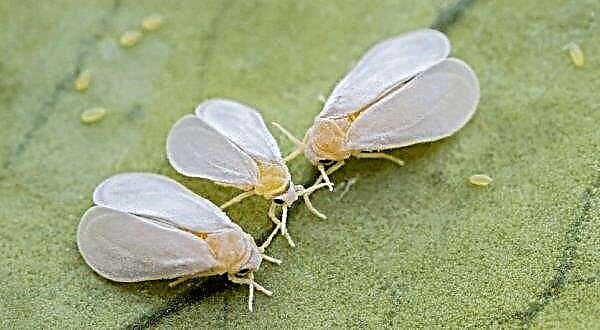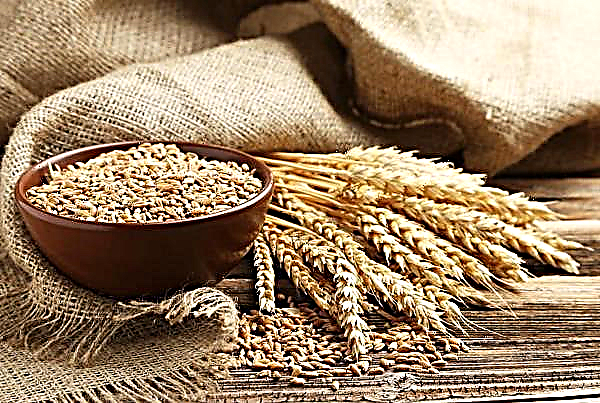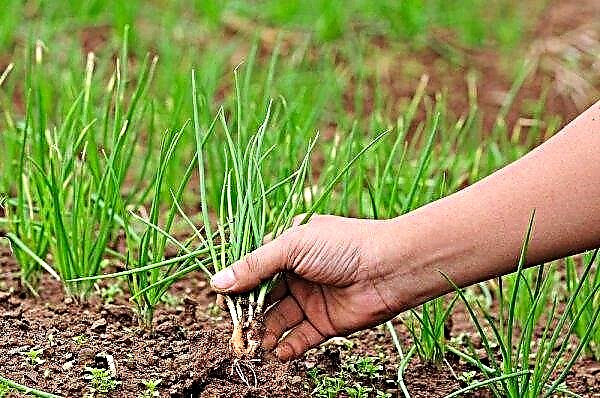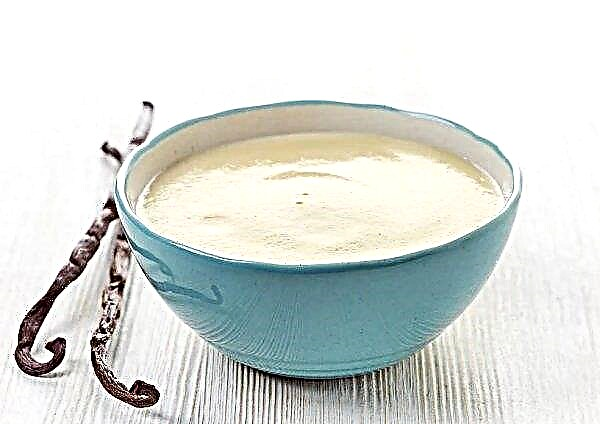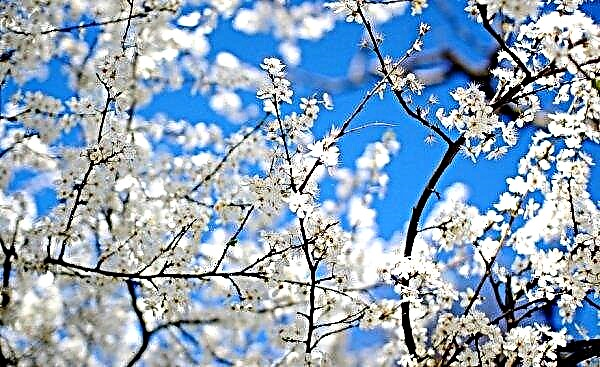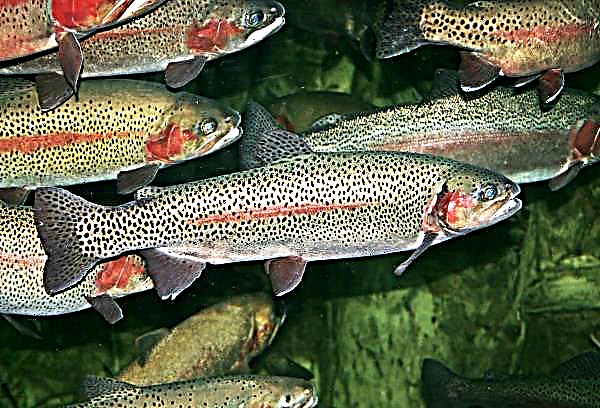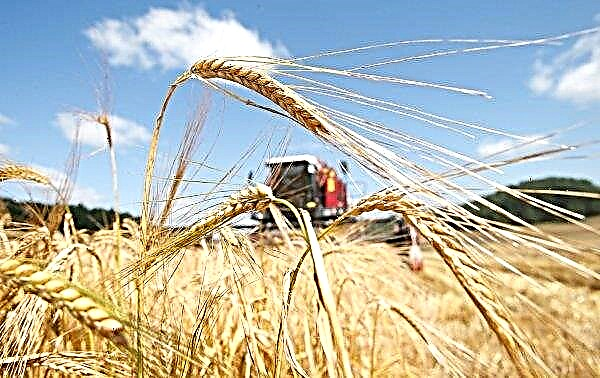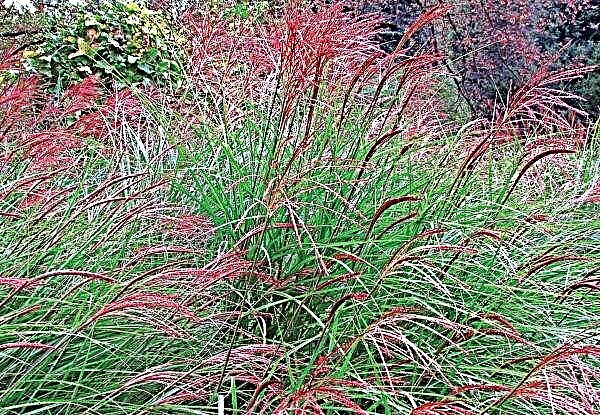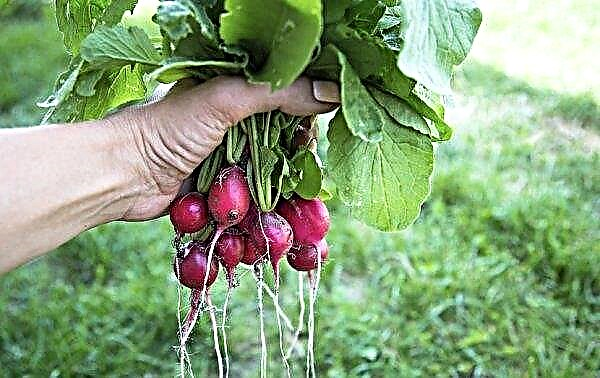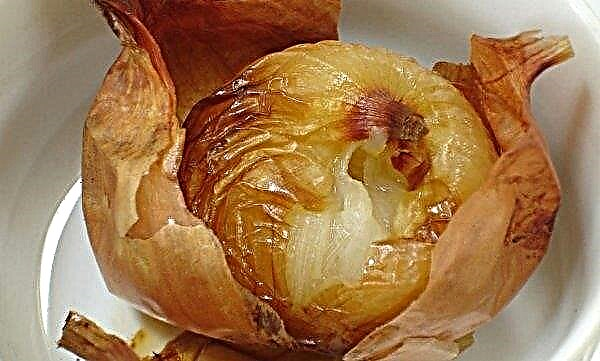All gardeners are familiar with aphids - a small pest that affects almost all types of vegetable, fruit and berry crops. The destroyer of cucumbers is melon aphid. And it will be discussed: how dangerous it is, as well as how to deal with it with the help of vinegar and other folk remedies.
What harm can aphids
Melon aphid is very small, no more than 2 mm in length. Its color varies from yellow and green to dark brown and black. Her strength in fertility and gluttony. In one summer, one female can give up to 50 generations. They love young tender shoots, leaves and ovaries. Insects choose the opposite side of the leaves as their place of residence; whole settlements can be found there.
Important! Ants are friends with aphids: they take care, protect from other insects and help them multiply, and in return get a sweet pad. That is why the fight against aphids will not be effective if you do not fight the ants, making traps for them.
What harm does aphid do:
- Insects suck juice from leaves, petioles and young shoots. The plant is depleted, it does not have enough strength for the growth and development of the fruit. You can lose not only the crop, but the entire bush.
- These bugs secrete a poisonous liquid, due to which the foliage curls and dies, and the whips stop growing.
- The fall, i.e., the sticky liquid with which the aphid covers the leaf surface, disrupts the process of photosynthesis, therefore, the overall development of the bush is impaired: growth slows down, flowering and fruiting are delayed.
- The pest can carry infectious diseases and infect cucumbers with them.
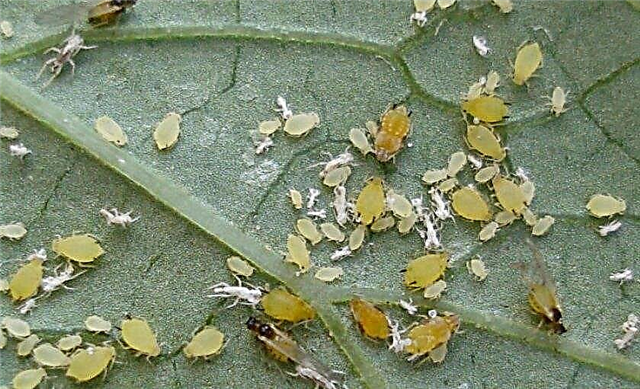
Signs of the presence of aphids on cucumber culture:
- sticky substance on foliage and shoots;
- young leaves become soft, hang sluggishly, curl, and old leaves keep their shape, but lose turgor;
- flowers and ovaries fall;
- light or dark spots (individual insects) or dirty spots (whole colonies) are visible on the back of the leaves;
- ants run around plants and near them.
Vinegar effectiveness
In specialized stores you can buy many chemical and biological agents effective in the fight against aphids. But before you buy them, you should think carefully. After processing with a chemical preparation, the fruits should not be eaten for 20 days. When processing biological products, this period is reduced to 5 days. But if you use folk methods, then the cucumbers remain constantly edible.
One of such folk remedies is vinegar solution. Vinegar has a very pungent odor that aphids cannot tolerate. In addition, in a certain concentration, acid can kill these insects. This tool is no less effective than store preparations. This is evidenced by its popularity among gardeners. The advantages of vinegar solution include the fact that it is prepared much easier and faster than other folk remedies, and is very easy to use. The melon aphid activity period lasts from May to the end of July. Throughout this period, you can spray cucumbers with vinegar, without fear of damaging the plants and fruits. For greater efficiency, you need to moisten with a solution each leaf, especially its lower side. With a large number of pests, spraying can be repeated 2 or 3 times in a day. After the cucumber plants are cleared of aphids, the next need for spraying will be needed no earlier than 3-4 weeks later.
Throughout this period, you can spray cucumbers with vinegar, without fear of damaging the plants and fruits. For greater efficiency, you need to moisten with a solution each leaf, especially its lower side. With a large number of pests, spraying can be repeated 2 or 3 times in a day. After the cucumber plants are cleared of aphids, the next need for spraying will be needed no earlier than 3-4 weeks later.
How to apply a folk remedy
Vinegar is of different types and has a different concentration. This affects the dosage of acid in the recipes.
It is mixed with water in the following proportions:
- table vinegar - 1 tsp. for 1 liter;
- apple cider vinegar (less concentrated) - 1 tbsp. for 1 liter;
- vinegar essence (very concentrated) - 1-2 tbsp. for 10 liters
In order for the treatment with vinegar solution to have a greater effect on harmful insects, it is often added with laundry soap (1 tbsp. Per 1 liter of solution) or liquid detergent (6–7 drops).
Important! Increasing the dosage of vinegar in recipes is dangerous. A more concentrated solution can burn cucumber leaves and harm yourself.
Soap action:
- keeps vinegar on the leaf surface, prolonging its effect;
- glues insects to the leaves so that they do not run away.
 It is best to spray the bushes from a spray gun with a flexible spray. Thus, it is possible to well treat the solution with leaves on all sides.
It is best to spray the bushes from a spray gun with a flexible spray. Thus, it is possible to well treat the solution with leaves on all sides.Additional Ways to Combat
In addition to the vinegar solution, there are many other folk remedies. Experienced gardeners are advised to alternate them, applying in their garden against aphids.
The following solutions can be ranked as the most effective:
- Liquid soap (2 tsp), vegetable oil (1 tbsp.), Water (2 tbsp.). Spray 3 days in a row.
- Garlic (grind 10 cloves), detergent (1 tbsp. l.), vegetable oil (50 g), water (500 ml).
- Mustard powder (100 g) stir in boiling water (3 l) and insist 5 hours. Strain the mustard solution, add liquid soap (5 tablespoons), vegetable oil (3 tablespoons) and water to make 10 liters.
- Baking soda (3 tablespoons), detergent (5 tablespoons) and vegetable oil (3 tablespoons) stir in 10 liters of water.
- Ammonia (10%, 50 ml), soap (5 tbsp. L.) And oil (3 tbsp. L.) Dissolved in a 10-liter bucket of water.
Vegetable oil and liquid soap cover the body of the insect. It cannot breathe, move, and perishes from it.
In addition to spraying, there are other additional methods of controlling aphids, biological:
- to plant fragrant herbs and nettles in the garden next to cucumbersthat lure eaters of aphids - ladybugs, germs, lacewings, wasps and birds;
- planting plants along the beds that repel aphids: onions, garlic and feverfew (Dalmatian chamomile).

Aphid Prevention
Aphid destroys a plant with great speed. 7-10 days after the appearance of insects can destroy the entire planting of cucumbers. If the gardener does not find them on time and does not start a timely struggle with them, he will lose the entire crop. The best method of pest control is prevention.
Did you know? Ants not only “milk” the aphids, but also take care of its wintering, bringing the females and their eggs to their anthill for the winter.
It includes the following regular actions:
- weed weeding, as the aphid first settles on the weed grass, and then moves to neighboring cucumbers;
- cleaning from beds of torn grass and other plant debris;
- preplant disinfection with potassium permanganate seeds, soil and greenhouse surfaces, because they can be infected with larvae;
- not very dense planting of seedlings, otherwise favorable conditions are created for infection not only by aphids, but also by other insects and diseases;
- preventive treatment of cucumber plants by the above means or store insecticides;
- timely nutrition with the necessary nutrients, which strengthens the plant so that it can resist diseases and pests;
- regular mowing of grass around the garden;
- Autumn digging of a site;
- setting traps for ants and destroying anthills.
 Aphids are a dangerous pest that spares no plants, including cucumbers. The easiest way to prevent its appearance on the site, taking all preventive measures. If she still settled on a cucumber bed, the application of the above recipes with vinegar and other folk methods will help to quickly rid the plants of this pest.
Aphids are a dangerous pest that spares no plants, including cucumbers. The easiest way to prevent its appearance on the site, taking all preventive measures. If she still settled on a cucumber bed, the application of the above recipes with vinegar and other folk methods will help to quickly rid the plants of this pest.

